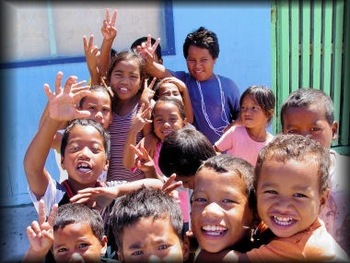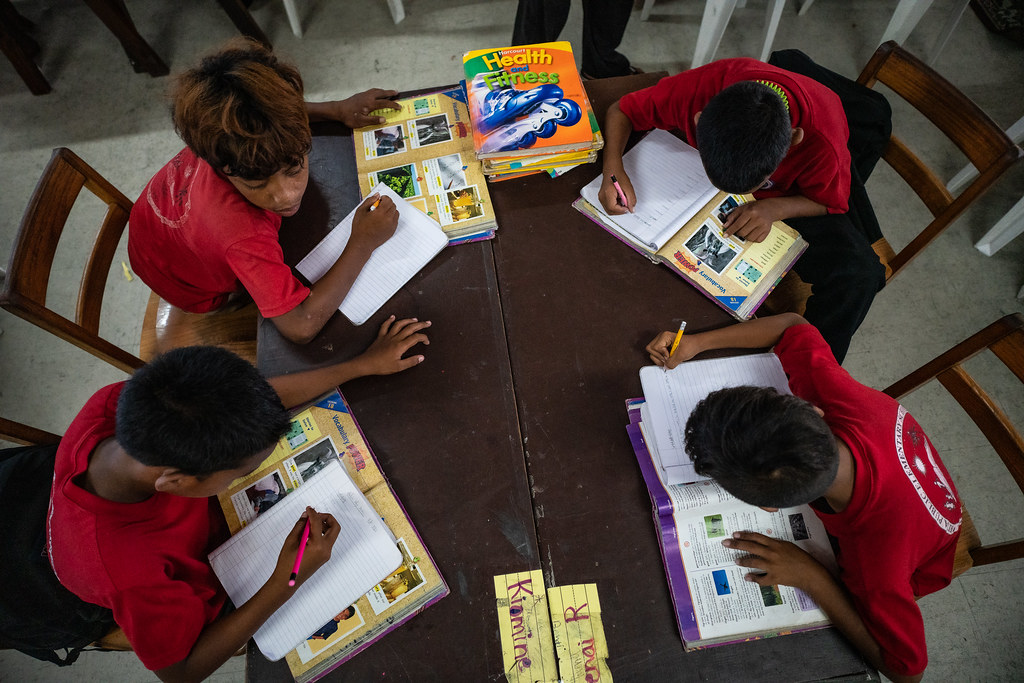National Training Council - Marshall Islands
페이지 정보
작성자 Alma 댓글 0건 조회 76회 작성일 25-08-05 13:18본문
RMI Education and Skills Strengthening Project
The Government of the Republic of Marshall Islands has actually gotten funding from the World Bank for the Education and Skills Strengthening Project (ESSP) expense. It plans to use part of the earnings for consulting services.
The consulting services ("the Services") will help the Project Manager and the RMI National Training Council in carrying out the World Bank-funded job effectively.
The project will concentrate on supporting the Project Implementation Unit (PIU) in developing a framework for Recognition of Prior Learning (RPL) for TVET, targeted at helping the College of the Marshall Islands and the RMI National Training Council examine and boost the abilities of workers through recognized college certification.
The in-depth Terms of Reference (TOR) for the project are shown in the attached Terms of Reference (ToR).
The National Training Council now invites eligible people ("Consultants") to suggest their interest in offering the Services. Intrigued Consultants must provide info showing that they have the needed qualifications and relevant experience to perform the Services (attach a Cover Letter of no greater than 4 (4) pages attending to the necessary experience and certification requirements curriculum vitae with a description of experience in similar tasks, comparable conditions, and so on). Firms' personnel might express interest through the using firm for the project. In such a circumstance, only the experience and credentials of individuals shall be thought about in the choice procedure. The requirements for choosing the Consultant are: A.
Mandatory Qualifications and Experience Master's degree in education, training
, management, or an associated field. Minimum of 5-10 years of working in TVET System. Curriculum Design and Systems.
Have 2-5 years' experience designing and
carrying out RPL. structures, policies, and treatments. A sample of previous work will be needed as proof of previous experience. Exceptional interaction, training, and assistance
abilities. Experience with dealing with varied stakeholders, including federal government. companies, TVET institutions, companies, and learners in the Pacific. B. Desired Qualifications and Experience Ability to deal sensitively in a multicultural

environment and construct effective team relationships with customers and relevant stakeholders. The attention of interested Consultants (consisting of firms )is drawn to paragraphs 3.14, 3.16 and 3.17 of the World Bank's"
Procurement Regulations for IPF Borrowers "July 2016 modified November 2020" Procurement Regulations ", setting forth the World Bank's policy on dispute of interest. Additional information can be acquired at the address below throughout workplace hours, 0900 to 1700 local time. Expressions of interest should be
provided in a written kind to the address below (face to face or by email )by 5:00 pm, 23rd December 2024.
The subject line should state:"National Training Council Strategic Plan Consultant -complete name of the prospect". Julius Lucky Director National Training Council!.?.!ntcdr@ntcinfo.org:Phone: 692 625-4521 Empowering Community Champions for Sustainable Development in RMI Gender Equality, Climate Resilience and Water Safety Training Majuro,
Republic of the Marshall Islands: The 4th
Women and Youth Training for
Gender Equality, Climate Change, Disaster Risk Reduction and Water Safety Management has actually recently occurred at the University of the South Pacific's campus in Majuro, the Republic of the Marshall Islands(rmi national training council ). This essential training was organized by the United Nations Development Programme( UNDP )Pacific Office through the Addressing Climate Vulnerability in the Water Sector(ACWA) job. The week-long capacity-building training intended to empower women and youth with the understanding and practices required for climate-resilient water safety management in the
Republic of the Marshall Islands(rmi national training council ). This training enhances a dedication to boosting RMI's water security and neighborhood resilience versus environment modification impacts, particularly ladies
and youth, ensuring that no one is left behind. The training welcomed individuals from all 24 atolls and featured resource speakers from government firms, non-governmental organizations, and worldwide advancement partners from the rmi national training council Environmental Protection Authority, Climate Change Directorate, Office of the Chief Secretary, Ministry of Culture and Internal Affairs, National Disaster Management Office, Women United Together Marshall Islands, RMI Human Trafficking Task Force, Waan Aelõñ in Majel, Jo-Jikum, and the International Organization for Migration. In her opening remarks, Secretary for the Ministry of Culture and Internal Affairs, Brenda Alik, highlighted the significance of cumulative action in constructing a climate-resilient nation."It is our obligation to come together and collaborate. As we deal with the difficulties posed by environment modification, understanding its impact on our water resources is necessary for enhancing the well-being of neighborhoods throughout the Marshall Islands,"she said.
rmi national training council Environmental Protection Authority General Manager Moriana Philip highlighted in her speech the necessary role of women and youth in dealing with climate-related obstacles."This workshop joins us from various neighborhoods to deal with the pressing issues we face today, consisting of climate-related obstacles, particularly on our water resources."We wish to emphasize the important function of ladies and youth in this project as your involvement contributes to its success and beyond, "she said.
The first day of the workshop covered important issues connected to gender equality, human rights, and public health within the Marshall Islands. It included conversations on gender equality and mainstreaming, concentrating on the effects of environment change on water security and the disproportionate effects on vulnerable groups. The importance of integrating gender equality and social addition into all project elements was likewise discussed. Human rights and human trafficking were dealt with, stressing the need for thorough protection of vulnerable populations

during emergency situations. In addition, the workshop attended to gender-based violence, highlighting the different kinds that can occur in disaster circumstances, such as domestic violence and sexual coercion. The program concluded with a concentrate on sanitation and health and their vital function in health, livelihoods, school presence, self-respect, and building durable communities. ACWA Project Manager Koji Kumamaru revealed his gratitude to all individuals
, highlighting the value of their contributions to their neighborhoods."Women and youth are essential to the success of the ACWA project. More notably, you are the champions and future leaders who will go back to your neighborhoods to empower others,"he stated. Throughout the workshop, individuals checked out Rongrong Island and examined the 15,000-gallon Flatpack Modular water tank installed at the Rongrong High School Boys Dormitory as part of the ACWA project. The setup is a crucial part of the job, complemented by assistance from Australia
's Department of Foreign Affairs and Trade. The see served as an important firsthand experience of the favorable effect of the ACWA job on the community and its
water resources. Marie Naisher from Jabat Island revealed her appreciation for the opportunity to join the workshop and explained her desire to be part of the job when it reaches Jabat.
"This was my first time participating in such training, and I discovered so much from the visitor speakers, group activities, and the site check out. I now understand the importance of clean water and how to sanitize it. I'm fired up about the ACWA project coming to Jabat and prepared to assist when it gets here,"she stated. Don Kobney, an ACWA site coordinator from Santo, Kwajalein, likewise shared his enjoyment."The workshop and website go to increased my self-confidence and understanding of the water tank installation.
Seeing the 15,000-gallon flatpack modular water tank firsthand gave me a clear understanding of the system, and I'm looking forward to sharing this understanding with my community, "he said. By the workshop's end, participants were much better geared up to understand environment change and its local impacts, drive adjustment and mitigation efforts, particularly in water security, and utilize brand-new resources to impact their neighborhoods favorably. ACWA is made possible thanks to the support of the Green Climate
Fund, with the project co-financed by the Government of the Republic of the Marshall Islands
. The Marshall Islands: Skills Training and Vocational Education Project Evaluates the efficiency of the project and highlights lessons. Offers inputs to 2 more comprehensive evaluations- the regional evaluation of ADB assistance for the Pacific and the unique assessment research study on Millennium Development Goals. The low academic attainment and scarcity of Marshallese skilled workers were mainly due to the low quality of basic education, absence of access to education in the outer islands, and weaknesses in skills training and the trade and technical education system.
These supported an economy marked by high joblessness because of constrained private sector growth and federal government downsizing. Unemployment was specifically high amongst the youth and ladies in the external islands. Suitable regional competent personnel for existing task vacancies
were unavailable, thus the importation of appropriately proficient foreign workers. Thus, there was a mismatch between available tasks and skills of the Marshallese labour force. These conditions supplied the effort for the Government
of the Marshall Islands to focus on technical and trade education training reforms. In 2000, ADB approved a loan for $9.1 million to improve skills training to supply trained employees required for continual economic and social development. This was to be achieved through an integrated nationwide skills training system. The project consisted of four elements: development of a profession awareness program, abilities training enhancement, enhanced skills training opportunities for ladies and youth, and institutional conditioning. The anticipated result was increased income-generating chances and employment for students, especially females and youth in the external islands. In general, the task was ranked not successful. Restricted development was achieved in making the project responsive to the requirements of its beneficiaries and private-sector employers. The enduring weak point of bad numeracy and literacy competencies
amongst public elementary and secondary school graduates and dropouts going into college or attending voc-tech education could be partially credited to the poor quality of basic education. The task was supply-driven and might not establish a strong linkage with private sector requirements or align its activities with the requirements of the labour market. The status of the technical and employment education training system has remained fundamentally the exact same after task conclusion. The study advanced that ADB might encourage the Government of the Marshall Islands, through consultation and policy discussion, to follow through on the government's
dedication to developing a dedicated labour info system to connect technical and professional education training program offerings with industry demand. Although the job established a labour market info system, in the lack of in-house staff capability at the National Training Council, it was not fully functional.
댓글목록
등록된 댓글이 없습니다.



